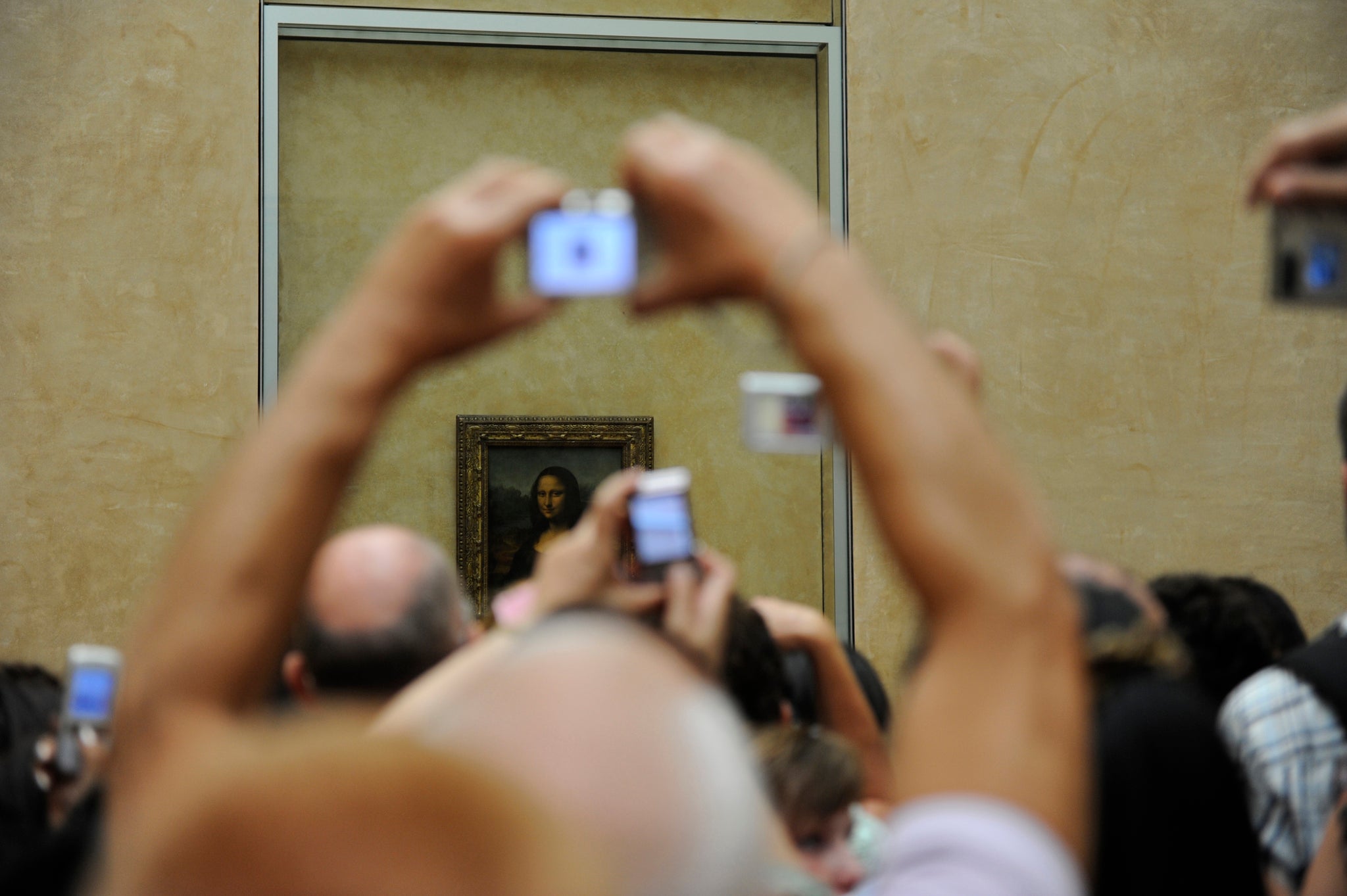Is Facebook making us forget? Study shows that taking pictures ruin memories
Students in an art gallery were more likely to forget the art they took pictures of, than those they were merely asked to observe

Your support helps us to tell the story
From reproductive rights to climate change to Big Tech, The Independent is on the ground when the story is developing. Whether it's investigating the financials of Elon Musk's pro-Trump PAC or producing our latest documentary, 'The A Word', which shines a light on the American women fighting for reproductive rights, we know how important it is to parse out the facts from the messaging.
At such a critical moment in US history, we need reporters on the ground. Your donation allows us to keep sending journalists to speak to both sides of the story.
The Independent is trusted by Americans across the entire political spectrum. And unlike many other quality news outlets, we choose not to lock Americans out of our reporting and analysis with paywalls. We believe quality journalism should be available to everyone, paid for by those who can afford it.
Your support makes all the difference.Cultural commentators and itinerant moaners have often complained that our obsession with taking pictures stops us from experiencing the moment, and now scientists are saying that our snap-happy habits may also be ruining our memory.
A new psychological study by Linda Henkel of Fairfield University has provided some proof that the “photo-taking impairment effect” exists: when we take a photo of something we’re less likely to remember it.
"When people rely on technology to remember for them — counting on the camera to record the event and thus not needing to attend to it fully themselves — it can have a negative impact on how well they remember their experiences," explains Henkel.
This might be something to try to remember next time you're considering filling up that next Facebook album.
To test her hypothesis Henkel set up an experiment in the Bellarmine Museum of Art at Fairfield University, leading students on a tour of the museum and asking students to take note of certain objects by photographing them or simply looking at them.
The next day the students’ memory of the tour was tested, with the results showing that the subjects were less able to recognize the objects they had photographed compared to those they had only looked at.
“People so often whip out their cameras almost mindlessly to capture a moment, to the point that they are missing what is happening right in front of them,” said Henkel.
A second study by Henkel’s team did present some mitigating evidence in the camera’s defence: when students took photographed a specific detail on an object by zooming in on it, their memory of the entire object was preserved, suggesting that the zoom serves to focus our memories as opposed to the instinctive snap.
Henkel is currently investigating whether the type of object being photographed affects memory. Although her tests showed that students forgot objects in an art museum, this doesn’t mean that forget the people we photograph – or perhaps the students simply didn’t care for the art.
However, Henkel is certain that the often-used excuse that we take photographs in order to review them later doesn’t hold up to scrutiny, simply because most of us never take the time to look over our digital archives.
"Research has suggested that the sheer volume and lack of organization of digital photos for personal memories discourages many people from accessing and reminiscing about them," says Henkel. "In order to remember, we have to access and interact with the photos, rather than just amass them."
The study, "Point-and-Shoot Memories: The Influence of Taking Photos on Memory for a Museum Tour", is being published in Psychological Science.
Join our commenting forum
Join thought-provoking conversations, follow other Independent readers and see their replies
Comments